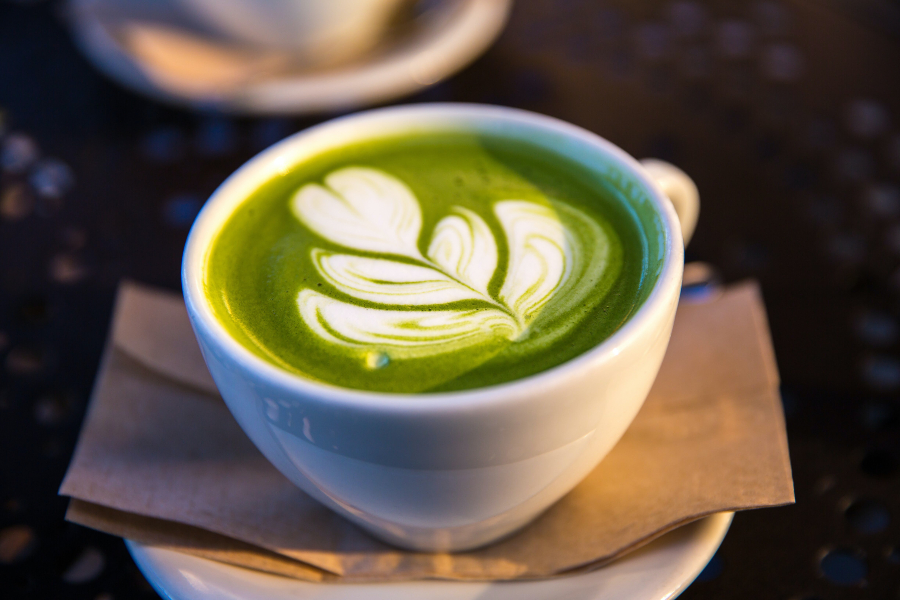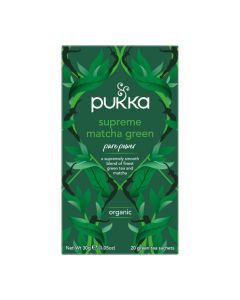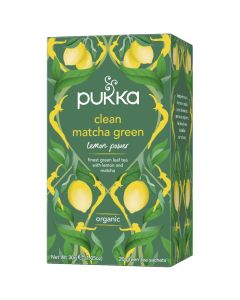
Matcha Tea: Benefits For Health & Beauty
Much has been made of the benefits of herbal teas, and rightly so as they have many properties that strengthen and support our bodies, supplying vital nutrients and hydration to keep us healthy and happy. However, matcha green tea stands out among these herbal teas as it offers its own unique beauty and health benefits.
Here, we explain what makes matcha unique and outline its special health and beauty benefits.
How is matcha made?
Matcha is made from the same plant as green tea, the camellia sinensis plant. However, only the young tea leaves, which have been specially grown, are used for matcha and they are ground into a fine green powder. With regular green tea, the leaves are dried and this is what we infuse into hot water. With matcha, the powder is whisked into the drink, be it tea or a matcha latte, and drunk – whereas green tea is removed after infusion, before drinking.
How is matcha grown?
Matcha green tea is grown in a unique way. The tea plants are covered around 20 to 30 days before harvesting, removing direct sunlight, to increase the chlorophyll production and thus making the plant a darker green. This also boosts the tea leaves' amino acid content.
What does matcha tea taste like?
The vibrant green matcha powder creates a bright tea that has a slightly bitter vegetable with hints of sweetness and umami. Matcha is used as part of the traditional Japanese tea ceremony. It is traditionally consumed across East Asia and the finest Japanese matcha is considered to be smooth, creamy and without any bitterness. Only top-quality matcha matches this profile and most matcha teas on the market will be slightly bitter if consumed on their own, hence it has become popular to mix matcha into lattes and smoothies.
The health benefits of matcha
Many studies have been done on matcha green tea, both when brewed as a tea and as a powder ingredient in foods or drinks. The findings give some encouraging indicators of the health benefits of matcha, though it is worth noting that a few studies are not enough on their own to prove any health benefits. In order to prove these benefits, clinical studies are needed. Nevertheless, there are a number of commonly accepted health benefits of matcha.
Matcha protects against harmful free radicals
Matcha is full of catechins, a type of antioxidant common in berries, cocoa and other teas. But matcha has been found to contain over 100 times the amount of the antioxidant compared to other green teas. Having such an abundance of this antioxidant is valuable because it helps protect against free radicals which can damage our bodies inside and out. Free radicals are found in pollution, alcohol and pesticides, among other sources.
Matcha decreases the risk of liver disease
A paper, which in itself was an analysis of 15 studies on green tea and liver disease, found a correlation of results that showed a decreased risk of liver disease from drinking green tea. Liver disease affects some 50 million people worldwide, so it is a significant issue, though there are a variety of causes. In additional studies, it was noted that taking green tea extract reduced signs of liver damage in those with liver disease. Matcha appears to have the same benefits as green tea for those with liver disease.
Matcha enhances brain function
Matcha has been found to improve brain function in a number of different ways. For example, matcha tea and snack bars containing at least 4 grams of matcha were found to improve memory, attention and reaction times. Matcha also contains L-theanine, which promotes alertness, and has been shown to increase alpha wave activity that can help reduce stress levels and encourage relaxation.
Green tea promotes heart health
Since matcha is a type of green tea, it shares the same benefits as those found in studies on green tea, such as promoting good heart health. There are around 7.6 million people in the UK alone who are living with a heart or circulatory disease. Heart health is vital to living long, discomfort-free lives and matcha may be a great help in achieving this. In a few studies on the effects of drinking green tea, a reduction in the risk of strokes and heart disease was found. Additionally, green tea has also been seen in studies to help to reduce LDL cholesterol, colloquially known as ‘bad cholesterol’. A high level of cholesterol is often a warning sign of future heart disease.
The beauty benefits of matcha
Matcha has grown in popularity for its health benefits, as outlined above. The beauty industry has taken note and matcha extracts have quickly become a popular ingredient in many skincare products and beauty treatments too.
Specifically, matcha collagen peptides, a blend of matcha green tea and collagen, has become a recommended way of improving skin and joint health. Like with matcha lattes, a popular way of drinking matcha, matcha collagen is used in powder form to create a daily drink.
Collagen is an important protein in the body. Marketing often focuses on how it benefits the skin, particularly elasticity and the reduction of visible wrinkles, but collagen is important for healthy bones, blood vessels, muscles and joints too.
The idea behind collagen matcha is to combine the health benefits of the tea and a collagen supplement, to promote inner and outer beauty. If you want to get the health benefits of matcha and are interested in the beauty benefits of collagen, it's the perfect match-a.
Matcha product recommendations
There are lots of different matcha products on the market, but here are some popular favourites.
Matcha teas
Collagen matcha






